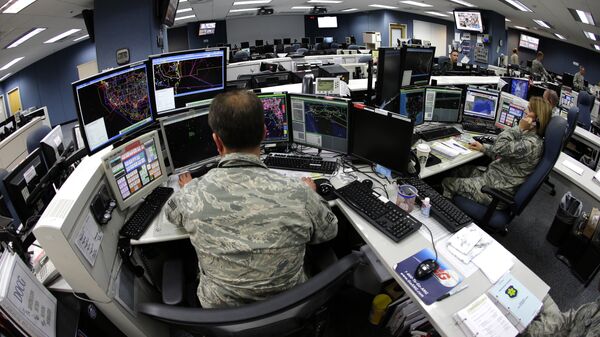The Joint Artificial Intelligence Center (JAIC), the entity created in 2018 to oversee and coordinate nearly all the Pentagon’s AI-related efforts, has come up with a prototype tool which can be plugged into logistics and supply-chain data to sniff out potential supply shortages ahead of time amid the COVID-19 crisis, Defense One has reported, citing officials familiar with the effort.
The tool, named ‘Salus’, after the Roman goddess of welfare, health and prosperity, is touted as being capable of using predictive analytics to find areas where supply shortages are expected, from the level of individual stores to zip codes, states and even the entire continental United States.
Salus is already said to be deployed with the supply and logistics systems of Northern Command (responsible for territorial defence) and the National Guard, with these commands tasked with supporting the Federal Emergency Management Agency’s COVID-19 response. Nand Mulchandani, JAIC’s chief technical officer, says that the Pentagon’s new tool provides predictive capability and data overlay, with the information gathered sent “directly into the systems that they’re using” to increase the efficiency of the military response.
The Salus tool has quietly been used to aggregate data on emergency medical supplies including face masks and ventilators, with its next task being the “resource allocation” of things like food. The tool is said to make use of publicly available data such as census information, hospital data, etc., as well as information provided by corporations, including the all-important sell-through data on which products are being bought and in which geographic location.

Mulchandani insists that the AI tool is privacy-friendly, and based on purchasing trends, rather than what any individual might buy.
The company hopes that down the road, Salus could be deployed across the entire US military, and even Joint All-Domain Command and Control (JADC2), the new multi-billion Pentagon effort to connect sensors and weapons systems across all domains – air, land, sea, space and cyberspace.
According to JAIC Lt. Cdr. Arlo Abrahamson, Salus is in reality a functional prototype applying a portion of the JADC2 concept envisioned by planners.

US military planners and analysts have received flak over the level of control they seek to endow AI systems with, forcing them to take a step back and reconsider their ideas in public statements. In February, the Pentagon approved a set of ethical guidelines for the use of artificial intelligence technology on the battlefield amid reports that the military was planning to increase the use of AI in warfighting operations. Late last year, JAIC director Lt. Gen. Jack Shanahan assured the public that although he was a big proponent of the integration of AI capabilities into the DoD, “there is one area where I pause, and it has to do with nuclear command and nuclear control.” According to Shanahan, the US does not need an automated US nuclear launch capability at this time.
From Dr. Strangelove’s doomsday machine to WarGames’ WOPR to The Terminator’s Skynet, the idea of using radically advanced computing systems in military applications has long been the subject of considerable public and scientific debate, with skeptics long suggesting that artificial intelligence should be kept out of the loop, at least when it comes to deadly weaponry with the capability to end the human race.



